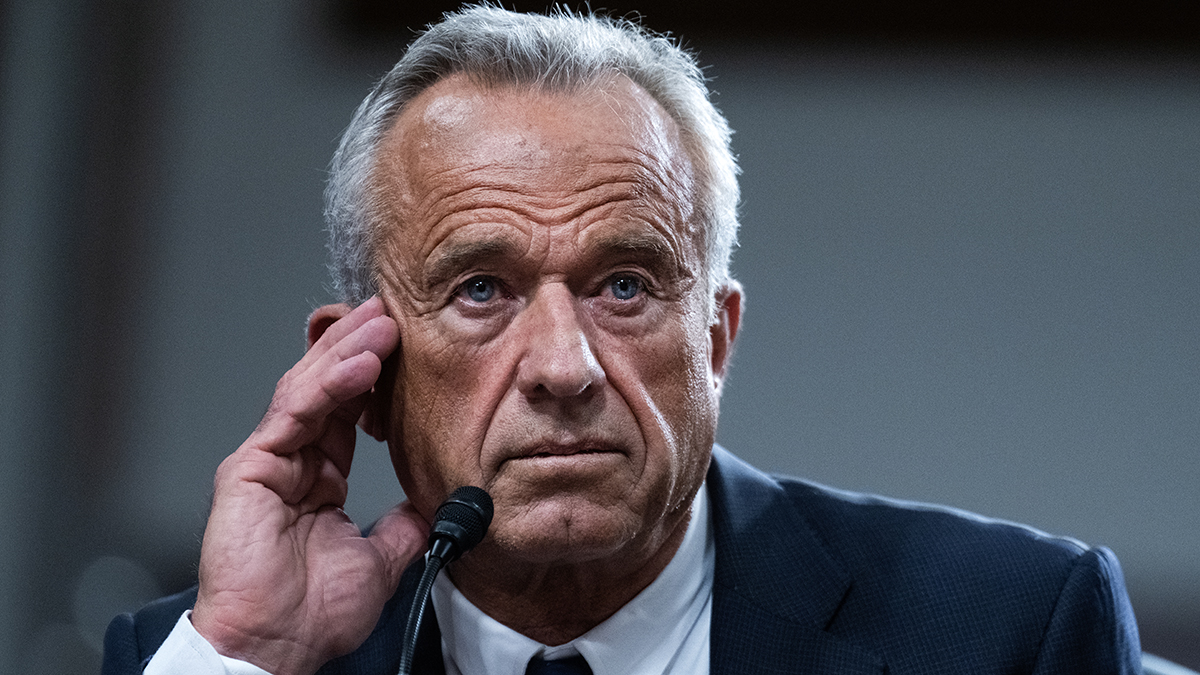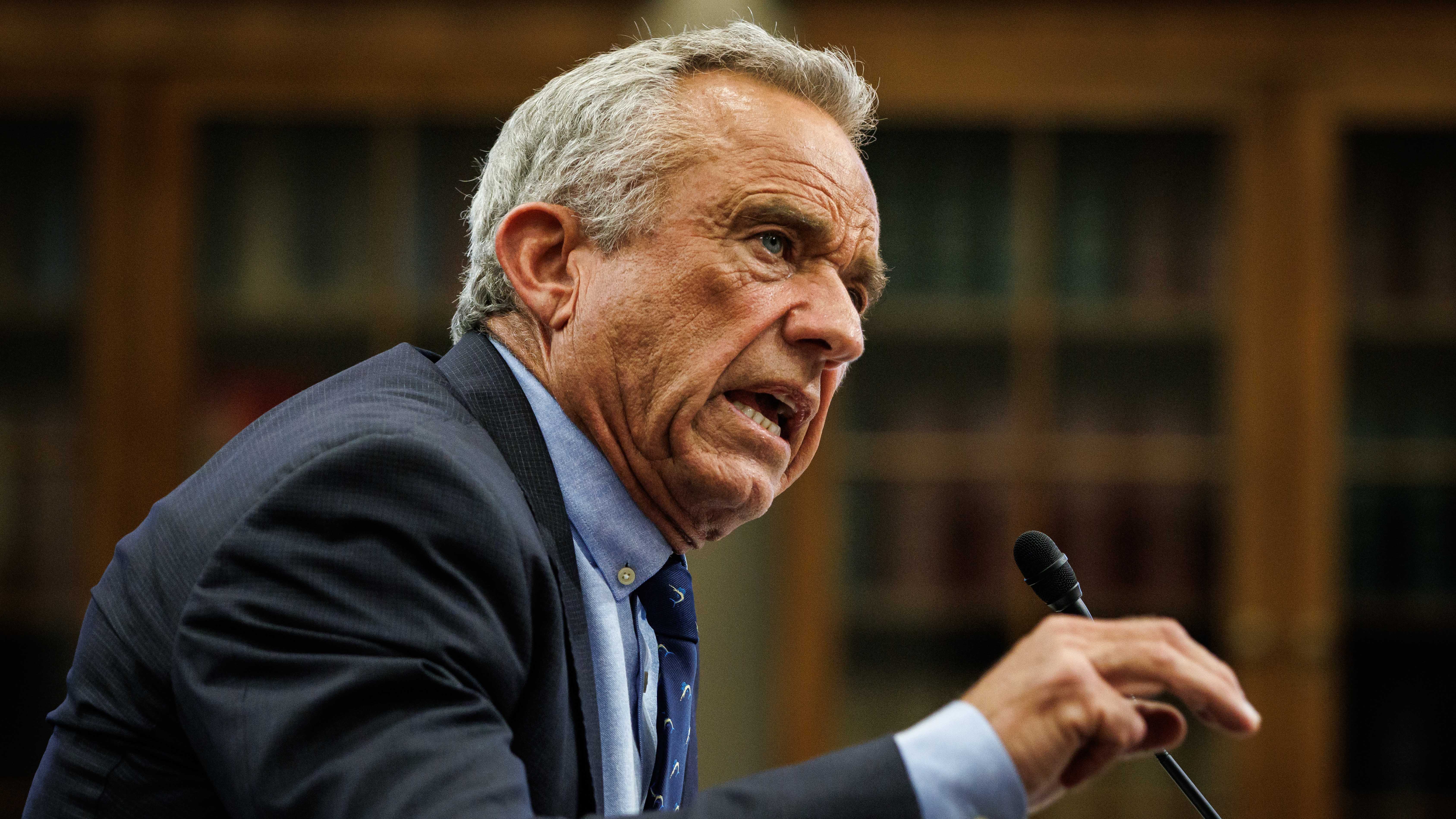RFK Jr. Swims in Contaminated Creek: Health Risk?
RFK Jr. Sparks Controversy: Swimming with Grandchildren in DC Creek
Introduction: A Dip Too Far?
Robert F. Kennedy Jr., a prominent figure known for his environmental advocacy and, more recently, his controversial stances, has once again found himself in the center of a heated debate. This time, it's not about vaccines or political endorsements. It's about a swim. Specifically, photos of Kennedy and his grandchildren taking a dip in Rock Creek Park, a waterway known to have high bacteria levels and subject to a National Park Service advisory against contact with the water. Was it a simple oversight? A calculated risk? Or a disregard for public health warnings? Let's dive into the details.
The Incident: What Happened in Rock Creek Park?
On Mother's Day, Kennedy shared photos on X, formerly Twitter, depicting himself and his grandchildren enjoying a hike in Rock Creek Park. However, the seemingly innocent snapshots quickly drew scrutiny when viewers noticed Kennedy and the children were swimming in the creek. The National Park Service has issued a clear warning against entering the water due to dangerous levels of bacteria and other pathogens. The advisory explicitly states that swimming and wading are not permitted due to the potential health risks.
The Warning Signs: What Does the Park Service Say?
The National Park Service's advisory is pretty straightforward. "Stay out of the water to protect streambanks, plants and animals and keep you and your family (including pets!) safe from illness," it reads. "Rock Creek has high levels of bacteria and other infectious pathogens that make swimming, wading, and other contact with the water a hazard to human (and pet) health." This isn't some vague suggestion; it's a clear warning about potential health consequences.
RFK Jr.'s Response: A Lack of Acknowledgment?
As of the time of writing, Kennedy hasn't directly addressed the controversy surrounding the swim. His post on X simply details the Mother's Day hike with his family. This silence has fueled the debate, with critics arguing that his actions demonstrate a disregard for public health advisories and a potential endangerment of his grandchildren. But is this a fair assessment, or are people overreacting?
Public Reaction: From Outrage to Concern
The reaction to the photos has been swift and varied. Many have expressed outrage, accusing Kennedy of hypocrisy, given his history of advocating for environmental protection while seemingly ignoring the warnings about Rock Creek's contamination. Others have voiced concern for the health of his grandchildren, questioning his judgment as a parent and grandparent. Social media has been flooded with comments criticizing his actions.
Environmental Concerns: Rock Creek's Contamination
Rock Creek, a vital waterway flowing through Washington, D.C., has faced significant environmental challenges over the years. Urban runoff, sewage overflows, and pollution from various sources have contributed to its high bacteria levels and the presence of other harmful pathogens. Efforts are underway to improve the creek's water quality, but the problem persists. The Park Service's advisory is a reflection of these ongoing issues.
Sources of Contamination: Understanding the Problem
- Urban Runoff: Rainwater carrying pollutants from streets, parking lots, and other surfaces.
- Combined Sewer Overflows (CSOs): Events where sewage mixes with stormwater and is discharged into the creek during heavy rains.
- Illicit Discharges: Illegal dumping of pollutants into storm drains that lead to the creek.
- Agricultural Runoff: In areas upstream, runoff from farms can contribute to nutrient pollution.
Health Risks: What Could Happen?
Swimming in contaminated water like that found in Rock Creek can expose individuals to a range of health risks. These risks include gastrointestinal illnesses, skin infections, and respiratory problems. Children, with their developing immune systems, are particularly vulnerable. Is a quick dip worth the potential for serious health consequences?
Specific Health Concerns:
- Gastrointestinal Illnesses: Nausea, vomiting, diarrhea, and stomach cramps caused by bacteria like E. coli and Salmonella.
- Skin Infections: Rashes, boils, and other skin irritations caused by contact with contaminated water.
- Respiratory Infections: Exposure to airborne pathogens can lead to respiratory problems, especially for those with pre-existing conditions.
- Eye and Ear Infections: Contact with contaminated water can cause infections in the eyes and ears.
Hypocrisy Allegations: Environmentalism vs. Action?
One of the main criticisms leveled against Kennedy is the perceived hypocrisy between his environmental advocacy and his decision to swim in a contaminated creek. Critics argue that his actions undermine his credibility as an environmental advocate. If someone who claims to care about the environment ignores a clear warning about water contamination, what message does that send?
The Role of Public Figures: Setting an Example
Public figures are often seen as role models, whether they like it or not. Their actions, both positive and negative, can have a significant impact on public perception and behavior. When a prominent figure like Kennedy ignores a public health advisory, it can normalize risky behavior and undermine efforts to protect public health and the environment. Is it fair to expect more from public figures? Perhaps.
Parental Responsibility: Protecting Children's Health
Beyond the environmental and political implications, the incident raises questions about parental responsibility. Kennedy's decision to allow his grandchildren to swim in the creek, despite the known risks, has been criticized as a lapse in judgment. Parents are generally expected to prioritize the health and safety of their children. Did Kennedy do that in this situation?
The Media's Role: Amplifying the Controversy
The media has played a significant role in amplifying the controversy surrounding Kennedy's swim. News outlets and social media platforms have widely circulated the photos and the Park Service's advisory, bringing the issue to the attention of a broad audience. The media's coverage has undoubtedly contributed to the public outcry and the scrutiny of Kennedy's actions.
Political Implications: Impact on Kennedy's Image
The incident could potentially have political implications for Kennedy, particularly if he intends to pursue further political endeavors. The controversy could damage his reputation and erode public trust. In an era of heightened scrutiny, even seemingly minor missteps can have significant political consequences.
Lessons Learned: A Call for Awareness
Regardless of one's opinion on the matter, the incident serves as a reminder of the importance of heeding public health advisories and being mindful of the environmental impact of our actions. It highlights the need for greater awareness about water contamination and the potential risks associated with swimming in polluted waterways.
Conclusion: A Murky Situation
The RFK Jr. swimming incident in Rock Creek Park is more than just a casual dip. It's a complex situation involving environmental concerns, public health warnings, parental responsibility, and the role of public figures. While Kennedy's intentions remain unclear, the incident serves as a stark reminder of the importance of respecting public health advisories and the need for continued efforts to protect our waterways. The ripples of this event will likely continue to spread, prompting further discussion and debate.
Frequently Asked Questions (FAQs)
- What are the specific health risks associated with swimming in Rock Creek?
Swimming in Rock Creek can expose you to bacteria like E. coli, leading to gastrointestinal illnesses such as nausea, vomiting, and diarrhea. You can also develop skin infections, respiratory problems, and eye or ear infections from contact with the contaminated water.
- Why is Rock Creek contaminated?
Rock Creek's contamination stems from various sources including urban runoff, combined sewer overflows (CSOs) during heavy rains, illicit discharges (illegal dumping), and agricultural runoff upstream.
- What is the National Park Service's advisory for Rock Creek?
The National Park Service advises against any contact with the water in Rock Creek due to high bacteria levels and other infectious pathogens. Swimming and wading are specifically prohibited.
- How does urban runoff contribute to water contamination?
Urban runoff is rainwater that flows over streets, parking lots, and other surfaces, picking up pollutants like oil, chemicals, and trash along the way. This contaminated water then drains into nearby waterways like Rock Creek.
- What can be done to improve the water quality in Rock Creek?
Improving Rock Creek's water quality requires a multi-pronged approach including reducing urban runoff through green infrastructure, upgrading sewer systems to prevent CSOs, preventing illicit discharges through stricter enforcement, and implementing best management practices in agriculture to reduce nutrient pollution.

